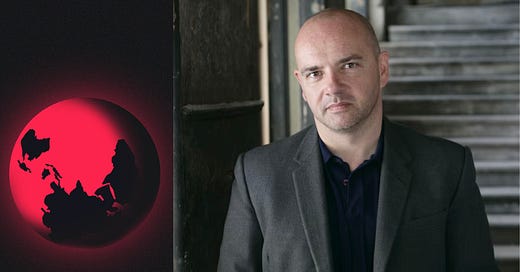“If the internet was based on a kind of commons, an almost scholarly freedom, then we need to pressure the people who are regulating the virtuality of our digital lives and say we need an early internet-like space and zone in this, where people can, for example, test out realities, test out new kinds of economy, prototype things, take those prototypes into reality, see if they work, take them into the virtual world again.”
“I think the destruction of the biosphere is baked in and therefore the social disruption is baked in as well. So we need some kind of continuity of civic space on the virtual realm that is potentially before us. We need a civic stake in the specific continuity between being in the streets and protesting and literally having to quarantine because of the next biospheric disruption.”
Imagine is a world beyond our wildest dreams...
“A life beyond your wildest dreams” is promised to those entering Narcotics Anonymous, a decentralised, collectively-run program for sobriety in which fellow addicts help one another get and stay clean. The promise doesn’t make sense when you first hear it—it’s only after months, even years, of becoming someone different that you realise how limited your imagination was made by addiction.
I think of our global relationship to capitalism very similarly. It’s difficult to imagine life without it, and thus a better world, but that doesn’t mean such a world isn’t possible. So how do we unleash our imaginations and creativity to create a culture and a world beyond our wildest dreams, one in which we look after one another and the more-than-human world? How do we code for care?
This is what Pat Kane joins me to discuss. Pat is a writer and musician, an activist, and a futurist. He writes a column for The National in Scotland and is also the co-founder of The Alternative, a media organisation embedded into community resilience and imagining alternative ways of organising. Pat to join me to discuss culture—how to understand it, how to code it, how to change it. We explore the possibility of the internet as emergent collective consciousness and a tool for creativity, resilience and connection. We discuss the importance of play: the psychology of play, the impact of play, and how play as resistance reveals the absurdity of the human systems that we are forced to interact with. We meander through this and more on love, truth, cosmology, resilience, difficulty and imagination.














Share this post